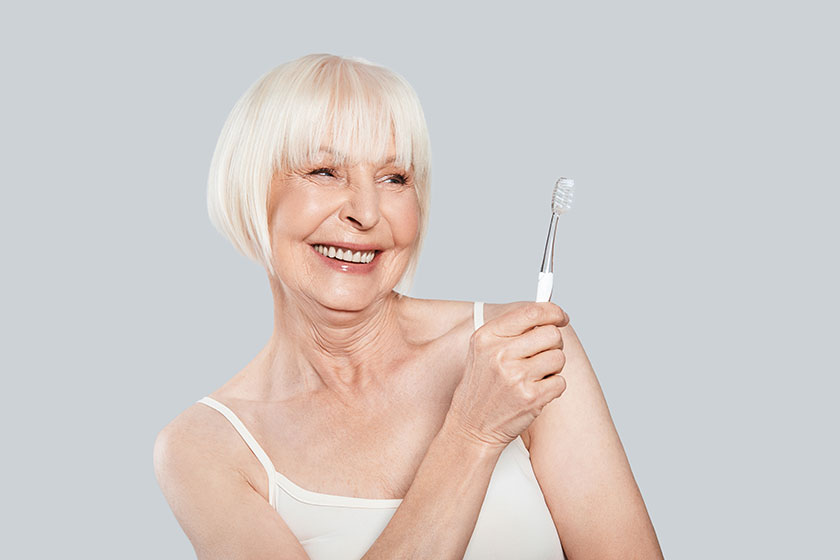As we journey through life, our bodies, including our mouths, undergo significant changes. Especially after the age of 50, dental care requires a bit more attention and diligence. Ensuring good oral health after 50 is paramount not just for your mouth, but it can also impact overall health. Dental problems might seem small initially, but neglecting them can lead to more significant health issues. Here are some essential practices to help maintain and improve your oral health during these golden years in a senior-friendly independent living community.
Brush Twice a Day
Regular brushing is the cornerstone of good oral health. As we age, our teeth and gums become more susceptible to decay and gum disease, making brushing twice daily even more crucial. Using a soft-bristled toothbrush can help avoid damaging the enamel or injuring the gums. In addition, brushing with fluoride toothpaste strengthens teeth and combats the onset of cavities. Remember, it’s not about how hard you brush but the consistency and technique that truly makes a difference. Gentle circular motions, ensuring all surfaces of the teeth are covered, can safeguard your oral health after 50.
Floss at Least Once a Day
While brushing is pivotal, it often misses the tiny crevices and spaces between our teeth. This is where flossing comes into play. Flossing daily helps remove food particles and plaque that accumulate between teeth and below the gum line areas, often untouched by a toothbrush. For individuals over 50, this becomes especially vital as the risk for gum disease increases with age. Gum disease, left unchecked, can lead to painful infections and even tooth loss. Therefore, making flossing a regular part of your oral care regimen is essential. If you find traditional floss challenging to use, consider using floss picks or interdental brushes to make the process easier.
Use Mouthwash
Mouthwash is more than just a solution for freshening breath. Therapeutic mouthwashes, available over the counter, provide several benefits for those concerned about oral health after 50. They can help reduce plaque, fight bacteria, and even strengthen tooth enamel. Using a mouthwash with fluoride can offer added protection against decay, especially for older adults who might be more prone to cavities. However, always remember that mouthwash is not a replacement for brushing and flossing but rather a supplement. It’s best to consult with your dentist on the ideal mouthwash tailored to your specific oral health needs.
Eat Healthy
The food we consume plays a significant role in our oral health, especially as we age. A balanced diet rich in calcium, vitamin D, and phosphorus can strengthen our teeth and gums. These nutrients are vital for maintaining the bone that supports our teeth and the health of our gum tissues. Foods like dairy products, lean meats, fish, almonds, and leafy greens can be beneficial. On the contrary, it’s wise to limit sugary and acidic foods, as they can promote cavities and erode tooth enamel. Remember, a healthy diet is the foundation of overall well-being, and its benefits extend to your oral health after 50.
Avoid Too Much Snacking
It might be tempting to indulge in frequent snacks, especially those of the sugary kind, but this can be detrimental to oral health. When we eat, especially sugary foods, the bacteria in our mouth produce acids that can lead to tooth decay. Continual snacking means our teeth are exposed to these acids more often, increasing the risk of cavities. It’s not just about the quantity but the quality of snacks. Opt for teeth-friendly snacks like nuts, cheese, and fresh fruits rather than sugary treats. And if you do indulge, make sure to rinse your mouth with water or brush your teeth afterward.







